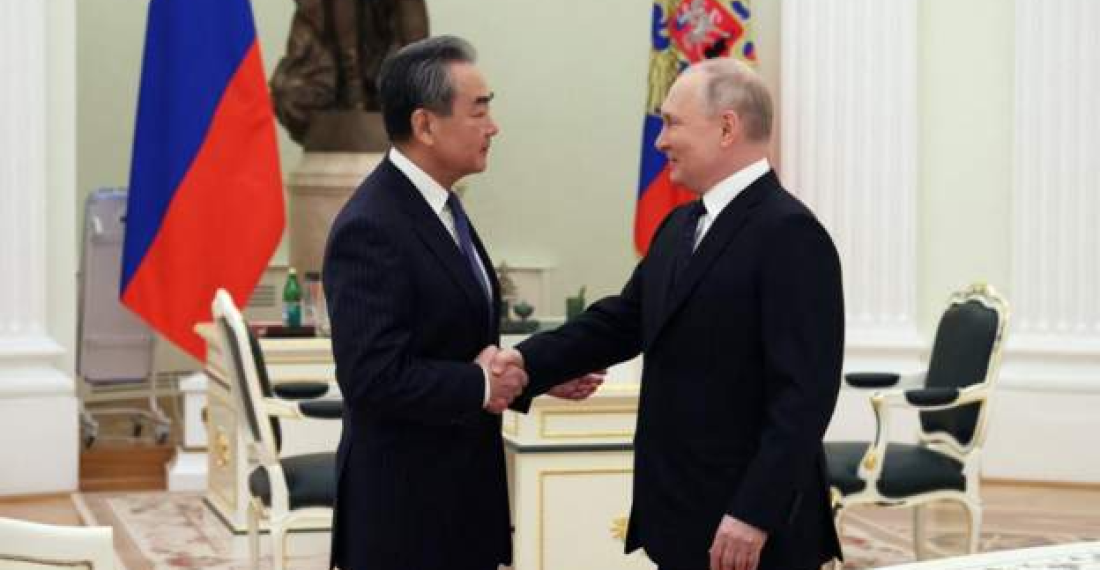For the first time since the start of Russia’s invasion of Ukraine, a Chinese offical is paying a visit to Russia. Xi Jinping’s new top foreign policy adviser Wang Yi arrived in Moscow on Tuesday to meet with top Russian officials, and on Wednesday (22 February) met the Russian President Vladimir Putin.
On Tuesday, Wang met with Nikolai Patrushev, the head of Russia’s Security Council. In their meeting, Wang and Patrushev agreed to increase their efforts to “improve global governance” and they “exchanged their opinions” on Ukraine, leaving out details about what exactly had been discussed.
On Wednesday, Wang met with both Russian President Vladimir Putin and Russian Foreign Minister Sergey Lavrov. Speaking with Putin, Wang said that bilateral trade between China and Russia turned out more positive than expected and could reach up to $200 billion annually. Meanwhile, Putin said that he awaits a "visit of the President of the People's Republic of China to Russia", adding that they have "agreed on this".
Regarding Ukraine, Putin said that Beijing could provide material support to the Kremlin’s invasion of Ukraine, which could lead to a potential escalation of the conflict internationally.
From China’s side, Wang told Putin that the relationship between China and Russia would “not succumb to pressure from third parties”, and that China supports “democratisation in international relations”, impliciting both countries’ desire to position themselves alongside the US on the world stage. In their meeting, Lavrov and Wang reportedly also closed new agreements, though details were not revealed.
Wang Yi’s visit follows Monday’s suprise trip by US President Joe Biden to Kyiv, who again demonstrated his support for Ukraine. Whereas the US had hoped for China to condemn Russia over its invasion of Ukraine, it now seems China is increasingly taking Russia’s side.
The BBC's Tessa Wong has also suggested that China may be wooing the rest of the world - including Russia - watching how the West handles the war as Beijing sets its sights on South-East Asia, Africa and South America.
source: commonspace.eu with agencies
photo: Reuters






